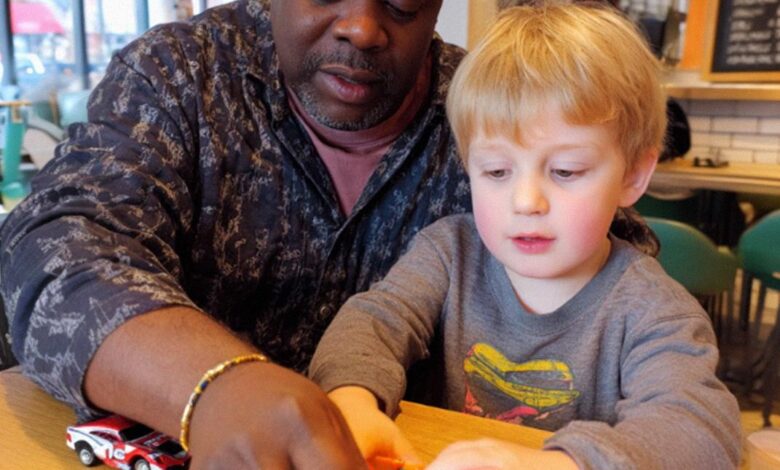This prediction was made by Paul Harvey in 1965, Now listen to His Terrifying Words

In the long, hot summers of the 1970s, a small transistor radio was my constant companion while working the fields with my father. Hours of hauling and stacking hay would pause at midday, when I’d park the tractor under a shady tree, unwrap my lunch, and tune in to Paul Harvey. His distinctive voice, rich with calm authority, seemed to cut through the noise of the world. Even now, the sound of his broadcasts transports me back to those days—days when my parents, my brother, my grandmothers, and my aunts and uncles were still alive and gathered often. Nostalgia reminds me how much I long for those simpler moments.
Paul Harvey wasn’t just a radio man; he was a national institution. From 1952 through 2008, his voice reached as many as 24 million people every week. His “Paul Harvey News” aired on 1,200 radio stations, 400 Armed Forces Network stations, and appeared in 300 newspapers. His signature program, The Rest of the Story, became a cultural touchstone. Listeners tuned in for more than headlines—they tuned in for the perspective, wisdom, and reflective pause he gave them in the middle of hectic lives. Harvey’s style wasn’t just informative; it was reassuring. He reminded people that stories could have meaning beyond the facts. For a few minutes, his storytelling could challenge you, comfort you, or change the way you thought.
Generations of Americans grew up with him. For many, Harvey was as familiar as family, a trusted presence whose cadence and phrasing made the world feel smaller and more comprehensible. His gift wasn’t just in delivering news; it was in making you think. He asked his audience, often without saying it directly, to consider what mattered most in life. That quality of reflection feels increasingly rare in today’s constant stream of digital noise.
What made Harvey even more fascinating was his willingness to write and speak pieces that cut deeper than daily headlines. Long before his television career, he wrote essays that he would revise and return to over the years, sharpening their edge as the world changed. One of those works became especially famous: a speech he adapted multiple times, sometimes referred to as “If I Were the Devil.” Whether you interpret it literally, metaphorically, or prophetically, the piece resonates because it captures anxieties about culture, morality, and the future of society. When Harvey read the 1996 version on air, many listeners were startled at how accurately his words seemed to predict the path the country was taking. Today, nearly three decades later, his observations still spark debate and reflection.
Listening to that recording now is an unsettling experience. Some of his “predictions” feel eerily on point, echoing challenges we still wrestle with: social division, moral confusion, and the loss of shared values. Harvey’s delivery, calm but firm, gives his words weight. He never shouted, never sensationalized, but he left his audience thinking hard about what kind of world they were building.
Yet for all the seriousness of his insights, Harvey also offered reassurance. He often reminded listeners to place their trust in God during times of trial. Faith, for him, was the anchor. Millions were moved by his famous “Letter From God” broadcast, a meditation on purpose and work. In that piece, Harvey painted a vivid picture of the farmer as the backbone of society. “God gazed down on his intended paradise on the eighth day and said, ‘I need a caretaker.’ So God created a farmer.” With those words, he captured the dignity of hard labor, the connection between land and people, and the sacred responsibility of stewardship.
That essay lived on long after Harvey first read it. In fact, decades later, Ram Trucks used his “God Made a Farmer” broadcast as the centerpiece of a Super Bowl commercial. The combination of Harvey’s timeless narration with striking visual imagery made it one of the most memorable ads in recent memory, introducing his words to a new generation.
Paul Harvey’s greatness wasn’t in being perfect or universally agreed with. It was in being trustworthy. Audiences knew that when he spoke, it came from a place of conviction and sincerity. He respected his listeners enough to challenge them, and in return they respected him enough to listen closely.
Looking back now, I realize why his voice mattered so much to me and millions of others. He carved out space for reflection in a world that rarely slows down. He reminded us that news wasn’t just about information—it was about values, meaning, and how we choose to live.
Today, as we navigate uncertain and divisive times, Harvey’s words remain relevant. Whether through his predictions, his parables, or his simple reminder to trust in God, he gave us tools to think more deeply about life and society. For those of us who grew up listening under the summer sun, his broadcasts are more than memories; they are lessons etched into our way of seeing the world.
Paul Harvey has been gone since 2009, but the legacy of his voice still lingers. He was a storyteller, a teacher, and in many ways, a moral compass. And even now, when his words resurface, they remind us that we could use more moments of stillness, more listening, and more reflection.
Because as Harvey might say: now you know the rest of the story.